Teacher Introduction
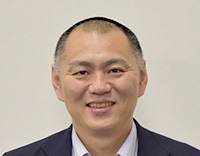
Professor Shingo Nagamatsu
Specialized fields / Subject
Public Policy (Disaster Prevention, Risk Management), Local Economic Recovery
Mail address: nagamatu

Website: http://semi.disasterpolicy.com/wordpress/
KANDAI SENSEI CHANNEL: https://www.sensei-ch.rd.kansai-u.ac.jp/movies/794/
Expert’s Eyes
A disaster-resistant society cannot be achieved by only "raising people's consciousness." Even in Japan where disasters are reported almost every day, the development of houses in steep slopes and at sea level is being continued as before, and cities with high risk of disasters such as Tokyo, Nagoya, Osaka, etc., continue to be developed. It is the goal of disaster economics and disaster mitigation policy to create a framework for the world through government policy in which actions to mitigate disaster risk are beneficial to everyone.
Remarkable File
・Received the encouragement award from Japan Association for Planning and Public Management for his article analyzing the reconstruction process of the devastated regional economy in 2007. In the same year, advocated the "bento (boxed lunch) project" by taking advantage of his knowledge, and contributed to the economic reconstruction of Kashiwazaki City. ・Received the work award from Public Policy Studies Association JAPAN in 2008 for his main work "Introduction to Theory of Disaster Mitigation Policy" (KOUBUNDOU). In the same year, received the encouragement award from Murao Scholarship Foundation. ・When the Great East Japan Earthquake occurred in 2011, advocated "Cash for Work" to create jobs for unemployed people via the reconstruction project in the devastated area. Published a book with the same title from Iwanami booklet, and appeared in the media many times. Was also involved in starting the temporary housing support liaison project of which one of the major purposes is job creation in Kamaishi City, Iwate Prefecture. ・Served as a member of the reconstruction promotion committee of Naraha town, Fukushima prefecture from 2011 to 2014, and is still involved in the reconstruction of Naraha town together with students. ・Has been engaged in the international joint research on emigration and return caused by disasters as a visiting researcher at the Price Public Policy Graduate School of the University of Southern California, since 2015.
Brief Personal History
Mar. 1995:
Graduated from the Department of Politics, Faculty of Law, Chuo University (Bachelor of Law)
Mar. 1998:
Completed the Master’s Course at Graduate School of International Public Policy, Osaka University (Master of International Public Policy)
Nov. 2000:
Completed the doctoral program without a doctoral degree of doctoral program, Graduate School of International Public Policy, Osaka University
Oct. 2001:
Received Ph.D. from Osaka University (International Public Policy)
Nov. 2000 to Mar. 2002:
MEXT Assistant instructor, Graduate School of International Public Policy, Osaka University
Oct. 2001 to Mar. 2002:
Visiting researcher of the Asian Disaster Preparedness Center (ADPC)
Apr. 2002 to Mar. 2007:
Full-time researcher of the Great Hanshin-Awaji Earthquake Memorial Association, Disaster Reduction and Human Renovation Institution
Apr. 2007 to Mar. 2009:
Special researcher of the National Research Institute for Earth Science and Disaster Resilience
Apr. 2009 to Mar. 2010:
Deputy Senior Researcher of the Hyogo Earthquake Memorial 21st Century Research Institute, Disaster Reduction and Human Renovation Institute
Apr. 2010:
Associate Professor of the Faculty of Societal Safety Sciences, Kansai University
Apr. 2015:
Professor of the Faculty of Societal Safety Sciences, Kansai University
Oct. 2019:
Vice Dean of the Faculty of Societal Safety Sciences, Kansai University (until Sep. 2021)
Oct. 2022:
Vice Dean of the Faculty of Societal Safety Sciences, Kansai University (until Sep. 2024)
Behind the scenes with the research group members

The interviewee was a third-year university student,
Miss Haruna Araki.
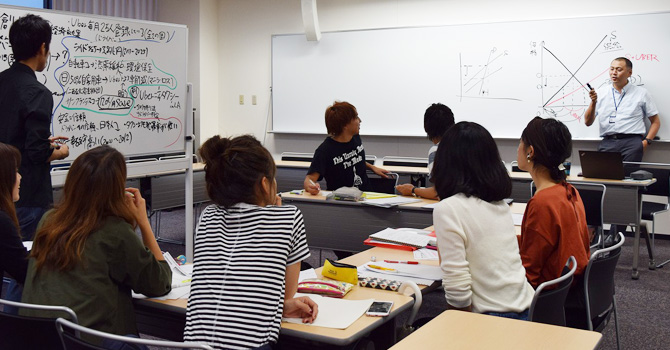
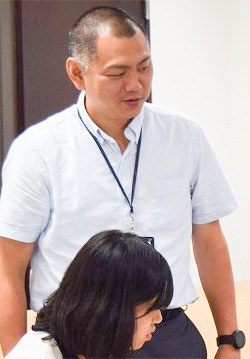
The theme of the Nagamatsu research group is "economics and public policy for safety and security." While studying the measures taken for disaster prevention and damage reduction conducted by the government and municipalities, we also consider the economic aspects such as costs and personnel required for them.
Moreover, we do more than simply obtaining knowledge here. Our goal is to acquire three main skills, the ability to discuss, to grasp problems, and to plan policies. Therefore, we participate in debate competitions where logical thinking skills are required. We cultivate our thinking ability first. And then, we conduct research on public policy concerning safety and security based on scientific evidence.
Q. Miss Araki, what kind of research are you yourself engaged in?
I am studying systems necessary for disaster damage reduction policies. I compare the crisis management systems in Japan and other countries. Then, I clarify both the weaknesses and strengths of the system in Japan to create an ideal system.
Last summer, Professor Nagamatsu and all the group members traveled to the U.S. as fieldwork. We visited the leading firefighting organization established as a result of the Blue Cut Forest Fire *. From this active organization we got a lot of valuable information that we couldn’t obtain from written documents or the Internet, such as their specific activities and morning meetings. I would like to use it for my future research.
*A forest fire that occurred in southern California on August 16, 2016. 1,300 fire fighters were deployed, and evacuation instructions were issued to 82,000 residents.
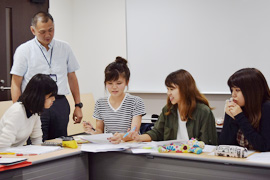
Professor Nagamatsu is very enthusiastic. He always cheers us up, but also occasionally scolds us.
When we had a debate competition, he was in the United States, but he used e-mail and Skype to point out contradictions in our manuscripts regardless of the time of day or night and corrected the contents.
Despite a hectic period before his own research presentation, he made the necessary arrangements in advance for out fieldwork in the U.S. Even during the trip, he took us to Major League games, concerts, and on drives, he said, "Because you came all the way to America, you have to enjoy the U.S. as much as possible". When he enjoys something, he does so like a cute child. He is also generous and takes care of us very much like a big brother.
Q. Tell me the atmosphere of the research group, or any interesting episodes, if any.
Professor Nagamatsu always set matters to rights, and we also follow his example. We clearly distinguish between leisure time and study time. A total of twelve members in the group, 4th and 3rd year students, went to the United States and spent two weeks at the professor's acquaintance’s home. After our daily fieldwork there, everyone looked back at the day and discussed what happened. After that, we switched to fun mode and we had a barbecue with our host family. We enjoyed it until late at night. Everyone in the group exercises the rule "work hard and play hard."
Everyone took charge of breakfast while staying in America and took turns in preparing it. There is no wall between seniors and juniors; it is a really good study group.
Q. Please tell me how your research group is different from others.
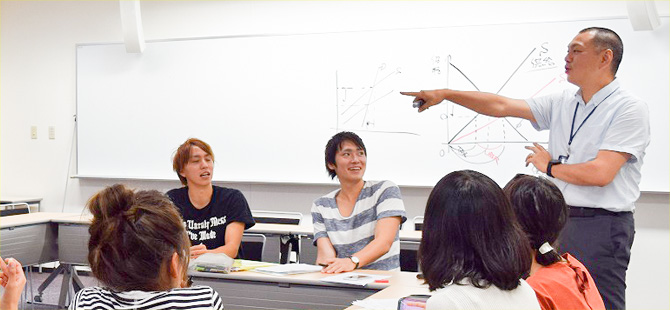 Members of the Nagamatsu Research Group sincerely and thoroughly work on everything. For example, every year, third-year students participate in a debate competition in Tokyo aimed at training theoretical building skills and discussion abilities, as well as deepening friendships. This year, we deepened the discussion by staying in the room until the day before the tournament so that we can have a better debate. Because of that effort, we won the Special Jury Award! We were inexperienced but united in our challenge, and as a result, our friendship has deepened. Also, I myself received the 3rd best speaker prize at the Kansai competition. I was not good at speaking in front of people, but thanks to this, I was able to give a presentation confidently when I visited a company as an intern.
Members of the Nagamatsu Research Group sincerely and thoroughly work on everything. For example, every year, third-year students participate in a debate competition in Tokyo aimed at training theoretical building skills and discussion abilities, as well as deepening friendships. This year, we deepened the discussion by staying in the room until the day before the tournament so that we can have a better debate. Because of that effort, we won the Special Jury Award! We were inexperienced but united in our challenge, and as a result, our friendship has deepened. Also, I myself received the 3rd best speaker prize at the Kansai competition. I was not good at speaking in front of people, but thanks to this, I was able to give a presentation confidently when I visited a company as an intern.
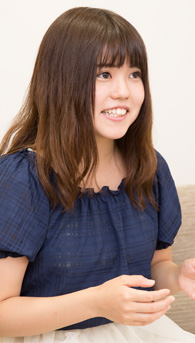
I recommend people who want to make lifetime friends to join this group. When deepening the discussion for the debate competition, we needed to straightforwardly talk to all the members. As a result, we came to know all the good and bad aspects of the members and created a trusting relationship where we can talk about anything. Our group is also suitable for those who have a desire to fully focus on something. After the debate competition, many members said, "It was the first time I did something so hard." Of course, it was not easy, but we had great joy from the accomplishments we made. Also, our group is perfect for people who wish to acquire the skills that society needs during their time at university because, in our research, we try to logically understand the essence of things deeply and have the opportunity to present our findings. We can cultivate the abilities to discuss and grasp matters. Indeed, many members of this group say that they are getting better at thinking theoretically and speaking in public. Anyone who wants to acquire the necessary skills and knowledge to work for society, please join us.
*This article was written in AY2016.